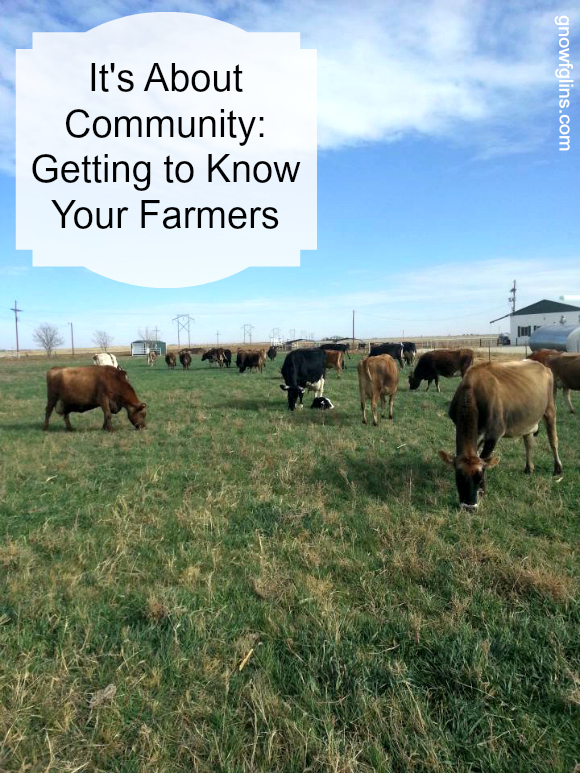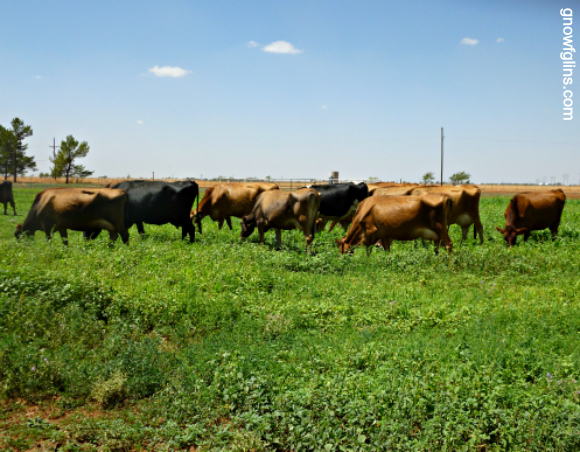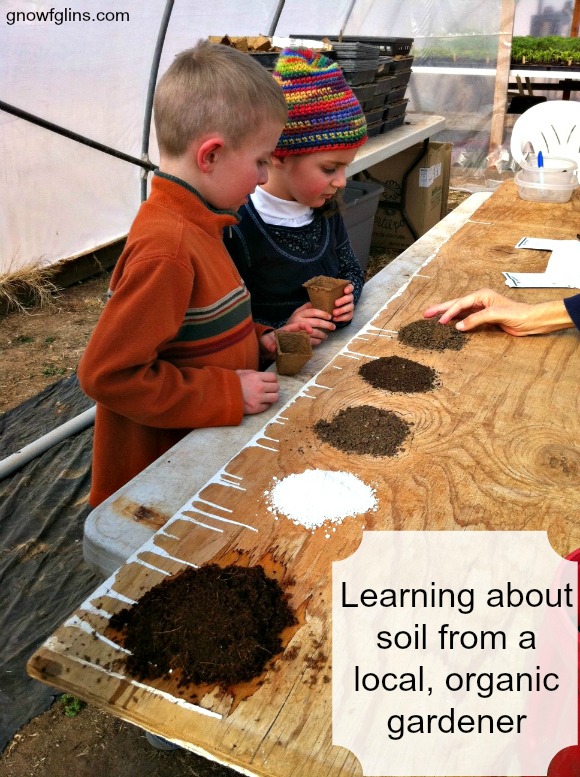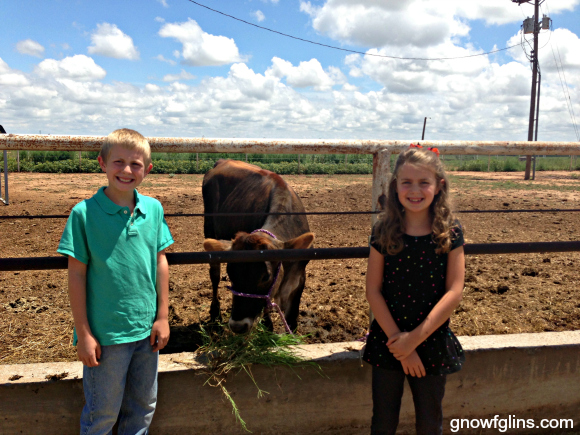
My life-long dream has been to return to a rural area and live off the land. Until I’m able to do that, I live in a neighborhood, and I’m not allowed to have chickens or a milking goat in my backyard. And truthfully, I’m not sure how successful a gardener I’ll turn out to be; I seem to have a black thumb! So far the only things I can’t kill are weeds…
Because we can’t raise our own food in this season of life, we spend a lot of time sourcing our food and looking for local farmers and ranchers who raise their plants and animals in a way that supports this lifestyle we’ve chosen. In many areas, it can be difficult to find farmers and ranchers who raise produce and livestock humanely, without pesticides and herbicides, without growth hormones, GMOs, and harmful vaccinations. When we do find a source for these Real Foods, we hold on tight!
Over the past few years, we have formed some wonderful, friendly relationships with our local farmers. I can tell you that they love nothing more than the work they do, and they love it when we, their customers, show interest in that work. Building relationships with our farmers and ranchers is, I believe, a key part of the entire concept of nourishing, traditional, whole foods. It is about so much more than just buying the foods we want to eat. It’s about community!
It’s About Community
I’m a conversation starter. I enjoy talking to people, finding out about their lives and families, hearing about what they do for a living, and most especially, talking about what they eat. It’s normal for me to stand in line next to a complete stranger and strike up a conversation. So, when I show up for a weekly raw milk pick-up, it’s natural for me to start talking to my dairy farmer or the other customers standing in line.
In fact, I met two of my best friends standing in that line! When you get to know a farmer, you get to know his customers. Like attracts like, so naturally, if 20 other people are drinking raw milk (or eating grass-fed beef or buying from the only organic stand at the farmers’ market), it’s pretty easy to assume that there are other commonalities as well.
One of those friends I mentioned taught me to make kombucha and even shared her kombucha scoby with me–the scoby I use now, over two years later! Another friend, met in the same line, is now a wonderful mentor to me in my homeschooling endeavors because she has years more experience than I have. I discovered many great resources, such as a local nutritionist and a local Weston A. Price chapter, just by standing in line to pick up raw milk.
These farmers are bringing so much more than food to our tables; they’re bringing community. There are probably hundreds, if not thousands, of people outside our churches, schools, and normal circles of friends who can enrich our lives and teach us so much, if we will just take advantage of opportunities to strike up conversations with the people who are buying from our local farmers and ranchers.
A Reward for Everyone
I believe we owe our hard-working farmers more than simply purchasing their products. Sure, this is how they make a living, but there is a reward in it for everyone when we, the customers, choose to get to know our farmers.
Albert is my dairy farmer. He is nice, funny, and loves his cows. He genuinely cares about his customers’ needs and desires. He aims to please. He is full of information and will gladly answer any question I have without making me feel rushed so that he can move on to the next customer. Albert was more than willing whenever I asked him if our family could make a trip to his farm last year.
During our field trip, we learned so much more about Albert and his small, family dairy. Each of their cows has a name, and everyone in the family refers to the cows by name. Though small, their facility is clean, sanitary, sustainable, and humane. We are proud to buy our raw milk from this family.
It took just a little bit of time and effort to get to know Albert. He lives over two hours away from me, otherwise I’d probably be having him and his family over for dinner once a month! In getting to know Albert and seeing his operation for myself, there was a beneficial trade-off for both customer and farmer.

I found out exactly where our milk comes from: cows who are happily grazing on green grass and organic alfalfa hay, who are not vaccinated or given growth hormones, and who are loved and have cute names. I pay $9 per gallon for my fresh, from-the-farm milk, but the peace of mind I have when I know week after week that my milk is coming from happy cows is priceless.
Getting to know Albert is advantageous for him as well. This happy customer eagerly refers friends and family to Albert for raw milk, cream, and butter because I am proud of where my milk comes from and I want to share this goodness with people in my community. It’s a win-win for customer and farmer!
My friend Mandy raises pastured chickens and provides our family with the most beautifully rich and yellow eggs. I have honestly never had better eggs in my life! When I met Mandy and learned she raised milk goats, chickens, and a cow for beef, I was chomping at the bit to know her more. What started as conversations about gardening and livestock has blossomed into a fun friendship. Our families now get together for holidays or just dinner, and we have been known to stay up way too late, laughing and talking. Yes, she is my farmer, but even more than that, she is my friend.
But, Why?
Why would you even want to build relationships with the men and women who grow and raise your food? Why not just show up, write a check, and go home?
I have found, and you probably have too, that the more I learn about food and natural health in general, the more passionate I become. With this growing passion comes a growing desire to learn more; it’s a never-ending cycle. These farmers and ranchers have spent their lives experimenting, learning, growing, and developing their skills. They have so much to teach us! And they’re eager to share what they know.
On the flip side, being an organic farmer, raw milk dairy owner, or grass-fed beef producer can be a lonely occupation. We’ve all heard about the attacks raw milk dairies face, the financial burdens they carry, the ridiculous regulations imposed on them, and the endless slandering of their products.
I live less than 100 miles away from Hereford, Texas, the Beef Capital of the World. In the Texas Panhandle, raising cows in disgusting, crowded feedlots on a GMO-corn/soy ration is not just acceptable or normal — it is THE WAY to raise beef cattle. Doing otherwise is almost heresy.
(I know this because, sadly, my family has been involved in the cattle industry for over 30 years. My father — who has worked in Hereford, Texas, for over 20 years — owns a company that is dedicated to making the chemicals that lace the cows’ feed, which is then delivered by truck and trailer into the feedlots. My uncle and grandfather owned a business that sold and serviced the trucks to distribute the mixed feed into the troughs.)
My cattle rancher is practically standing alone, the odd one in the massive sea of CAFO cattle ranchers in our area. He has chosen to keep his cattle on grass from the time they’re weaned until they are butchered. His cows never eat a drop of corn and never receive vaccinations or antibiotics. My dairy farmer faces ridicule and persecution because of his food raising methods. My pasture-fed goat milk farmer has to label her product “not fit for human consumption” because the government has deemed that milk unworthy since it’s raw.
However, it’s not just rules, regulations, and ridicule that our farmers face. Drought, high gas prices, tornados, hail, and more make their job even more difficult. Yet, they persevere because it’s that important to them to provide us with the products we love so much.
I don’t know what the “norm” is where you live. Maybe it’s really easy for you to source GNOWFGLINS in your area; if so, you are very blessed! It’s not easy where I live.
Farmers and ranchers who have dared to be different, to return to the whole and natural way of raising their plants and animals, have made high-quality foods available to my family — foods that would be practically impossible to source otherwise (at least in today’s world). I think these men and women, who work so tirelessly for us in the face of so much opposition, deserve a supportive and caring friend who isn’t only interested in products, but who genuinely desires to know THEM.

Key Points and Getting Started
Visit the farm. Request a farm visit to get know your farmer and his/her operation. If they won’t let you see it up close, that could be a red flag. However, realize that if you get a “no” or “not right now” this doesn’t necessarily mean they’re trying to hide something. It could stem from a simple desire for privacy and efficiency. Many farmers are quiet, hard-working, private people who discourage spontaneous visits but are happy to schedule a visit during a more convenient time — and possibly as a group tour so in their available time they can get to know many visitors and customers at once. Farmers are busy people, too! (For example: check out how the Dervaes family of The Urban Homestead in L.A. handles visit requests.)
Schedule a family or homeschool group field trip to the farm. This is educational, but will also let you see firsthand where your food is coming from. Ask questions, too! In my experience, these farmers are more than willing to share tricks of the trade to help you in your home gardening or husbandry endeavors.
Try to show up to your milk drop, beef pick-up, or farmers’ market early so that you have time to talk to your farmers before they’re too busy. If they’re not already too busy, that is. Don’t limit your conversation to what they do for a living; ask about their family or what they like to do in their (little) free time.
Be thoughtful and give back. Add an extra $5 or $10 when paying for your order. These small farms are expensive to run, and every little bit helps. This also shows your farmer you appreciate them!
Ask how you can help. For example, Mandy, my chicken farmer friend, appreciates that I save kitchen scraps for her to feed her chickens and that I return empty egg cartons. She knows she can trust me to have several buckets of organic fruit and vegetable scraps waiting for her each week, and I know that I’m doing what I can to contribute to the well-being of the chickens who give me delicious, pastured eggs. Maybe you can help harvest veggies or pull weeds to give your farmer an afternoon off. Or perhaps you could offer to water animals, help clean out pens or stalls, or help your rancher fix a fence or a leaky barn roof. There are many ways to take a load off their shoulders.
Acknowledge their sacrifices. There was a milk drop on the Fourth of July. I am able to get eggs on Thanksgiving or during Spring Break. These farmers are so willing to provide nourishing foods to us that they often sacrifice holidays, vacations, and time with their families to do so. Thank them for this generosity, acknowledge their sacrifices, and be generous in return by writing a thank you note, giving them a gift card or a batch of homemade cookies, and referring more customers their way.

I don’t know what I would do without the handful of people who make nourishing foods possible for my family and me. I hope you’re inspired to get to know your hard-working farmers and ranchers (if you haven’t already). Get the whole family involved in appreciating the people who spend their lives providing us with local, whole foods.
Are you a farmer or rancher who wants to build relationships with your customers? Are you a customer who might need to get more involved in forming relationships with your farmers? How do you show your farmers your appreciation?
We only recommend products and services we wholeheartedly endorse. This post may contain special links through which we earn a small commission if you make a purchase (though your price is the same).


We’ve made good friends through getting to know our farmers as well! We volunteer ourselves out to help whenever we can, in fact, this summer we helped process chickens a couple times! Was a great learning experience and we gave them some free labor!
Jenny, that is fantastic! I am slightly jealous of your experiences in processing chickens…kind of a weird thing to be jealous of, right? Maybe if we find some land someday, I’ll get to experience it for myself!
I really enjoyed this post. I think it is important to build community with your farmers. However, I don’t think this is necessarily appropriate or required:
” Add an extra $5 or $10 when paying for your order. These small farms are expensive to run, and every little bit helps.”
When I look for a farm, I look for one that has a sustainable (environmentally AND economically) business model. It is important to choose a farm(er) with an economically sustainable business model because they are less likely to take short cuts that could endanger the quality of the food they are producing. It also means they are charging correct prices for their product and you shouldn’t have to give them extra.
Farming is, after all, a business, not a charity. They should be charging enough to run their farm and make a profit. I shouldn’t have to give them extra money on top of what their product costs. I think the suggestions under “acknowledge their sacrifices” are more appropriate. I have baked cookies for my farmer, given them cards, etc.
For many of us, “acknowledging sacrifices” goes both ways. My family is not well off and we do sacrifice other things in order to afford high quality food. We pay more to local farmers, and do without other things. The expectation should not be that we give them extra money above and beyond the asking price. We also work hard and sacrifice. We budget according to what a farmer asks, and assume that they are keeping to the sustainable business model they had when we first vetted them.
I know farming is expensive; I also know my farmer has a nicer house and car than we do. I hope that is because they are a responsible business person and not because they rely on their customers for tips.
Brenda, thank you for your thoughtful comment. I do want to clarify, however, that the list of getting started in building community with our farmers is not a list of requirements or expectations. Rather, they are simply suggestions of ways to get to know our farmers and appreciate them for their hard work. I agree with you that buying from farmers with responsible business plans is wise; after all, we don’t want them to go bankrupt and leave us without that food we’ve worked so hard to source!
Many families, ours included, enjoy blessing others financially whenever we are able. It’s not all the time, and we don’t view it as charity or a “tip” to give someone a bit over and above what is required of us. It is just another way of showing our thankfulness and willingness to help them out.
My farmer Albert runs an extremely sustainable farm. His prices are reasonable, and he doesn’t believe in debt or other risky business practices. However, in West Texas we’ve had three years in a row of drought. Grass wouldn’t grow, hay prices skyrocketed, and my farmer was in serious financial trouble. Even after raising the prices of his products a bit to compensate, he was very fearful that he would have to sell part of his operation just to pay bills. His financial trouble had nothing to do with him being irresponsible or taking risks to earn himself a bigger paycheck; it was completely and totally beyond his control, and he was fighting to keep his head above water. In that situation, literally, every bit helped. That is why I made the suggestion to add an extra $5 or $10 to your order.
I would never tell anyone to put themselves in a financial bind to bless someone else financially. That would not be responsible or wise. I hope you found the other suggestions more practical for you. Thank you again for taking the time to share your thoughts!
Blessings,
Lindsey
Great post, Wardee! Definitely sharing this one this week! I have been inspired to work harder at this. I previously had met many farmers through our local farmer’s market (produce) but have been struggling to find a local source for truly pastured eggs – that is one of the biggest things we consume in our home and I’d love to find at a more reasonable price and have that connection with (and help) a local farmer. I’ve started asking around to get some names as this is a definite goal. I so appreciate the great advice you’ve shared here! Blessings, Kelly